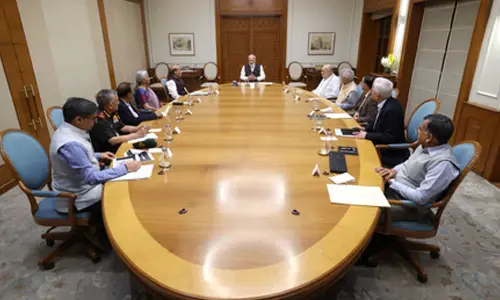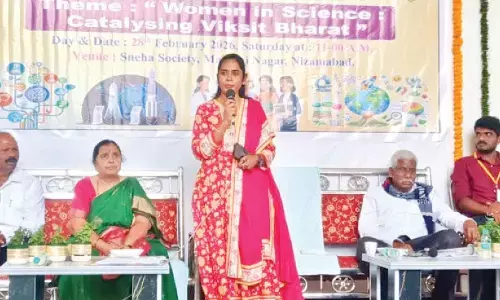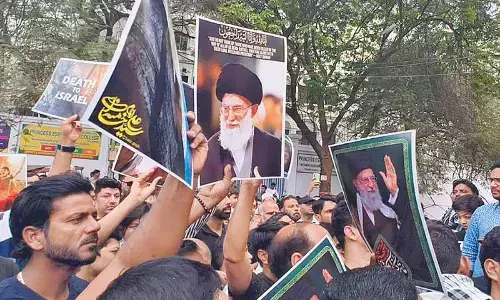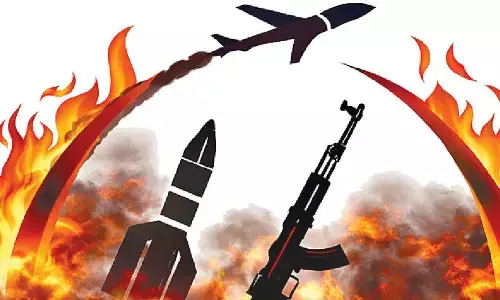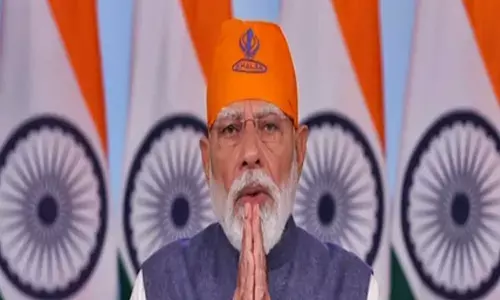Time for bureaucracy to break free of politicians

The Indian Administrative Service (IAS) is at the apex to run the country’s administration. It replaced the Indian Civil Service (ICS) which was an instrument in the hands of the British to rule over India. After Independence, there was serious thinking whether there should be an all-India service at all. The States wanted persons from their own area to administer.
In many countries, there is a committee for civil service supervising suspensions, transfers and promotions of officials. A similar committee can be constituted in India as well. The task can also be entrusted to the Union Public Service Commission (UPSC), which is also the recruiting authority
The Indian Administrative Service (IAS) is at the apex to run the country’s administration. It replaced the Indian Civil Service (ICS) which was an instrument in the hands of the British to rule over India. After Independence, there was serious thinking whether there should be an all-India service at all. The States wanted persons from their own area to administer.
But, then Home Minister Sardar Patel was particular to have an all-India service to articulate the feeling of unity and to maintain the diversities prevailing in the country. The service would also, Patel asserted, ensure that the Constitution remained supreme in the medley of pulls by different States. Two all-India services, Indian Administrative Service and the Indian Police Service (IPS), were constituted. They came to occupy top positions in the States.
This arrangement worked fairly well till the early 1970s when the rot started due to the Centre’s maniac effort to concentrate power and the States’ ambition to play politics through civil servants. This has practically nullified good administration. The IAS has become a glorified State service. The rulers use it in the manner they like.
In reality, however, the Emergency is the watershed. Then Prime Minister Indira Gandhi suspended the Constitution and used IAS officers to enforce illegal acts and suppress critics. This was the time when the thin line between right and wrong, moral and immoral was erased. Only a couple of officers stood up against what was sheer dictatorship.
Fear of punishment for disobedience made the service servile. It was once a steel frame but it has now turned into a seal frame. The Shah Commission, appointed to look into the excesses during the Emergency, has deplored how the bureaucracy caved in. The Commission said: “The ethical considerations inherent in public behavior became generally dim, and in many cases beyond the mental grasp of many of the public functionaries. Desire for self-preservation, as admitted by a number of public servants at various levels, became the sole motivation for their official actions and behavior…”
The service has not recovered from the carrots dangled before it during the Emergency. In fact, it is going out of the way to placate the rulers. The latter, in turn, have rewarded those who did what the rulers wanted. The malaise is largely because of two factors: one, the rulers do not respect the regulations and violate them to reap benefits for themselves and their parties; two, the IAS officers who are allotted to the States have surrendered because of threat of transfer or posting to an unimportant position. Therefore, it is heartening to see IAS officers like Durga Shakti Nagpal from UP and Ashok Khemka from Haryana standing up against the wrongs the rulers wished them to do.
The former has been suspended for stopping illegal mining by sand mafia. The Samajwadi Party, ruling UP and placating the Muslim electorate, has justified her suspension, saying that she had endangered communal harmony by ordering demolition of an outside wall of a mosque. One, this is not true. Two, she was within her right to demolish any unauthorized structure on government land. In a judgment, the Supreme Court has said that a place of worship should be pulled down immediately if the government land has been encroached upon.
It is a pity that the Supreme Court rejected a public interest litigation (PIL) petition challenging Nagpal’s suspension. The court is technically correct that it cannot interfere in matters between the government and the employees. The court had the opportunity to set right the rot. It should have realized the anger which swept through the country following action against the two officials.
The support of IAS associations from some States and the trainees at Mussoorie to Durga evokes hope that the service which has ingratiated itself with politicians may begin to assert itself, as was the case before the Emergency. The manner in which the three-member IAS officers’ committee endorsed the Haryana government casts a shadow on the behavior of the service. The nation still hopes that the bureaucracy will make up for the deficiencies which the politicians, particularly belonging to the ruling party in a State or at the Centre, have created in the system.
In many countries, there is a committee for civil service supervising suspensions, transfers and promotions of officials. A similar committee can be constituted in India as well. The task can also be entrusted to the Union Public Service Commission (UPSC), which is also the recruiting authority.
The service itself will have to do introspection if officers are to act only on the basis of self-promotion. Today when the common man does not get even what is rightfully due to him, he is disillusioned with the entire system. True, politicians will continue to keep an eye on the electorate, but the IAS cannot afford to fall prey to their designs. A public functionary must display a degree of vigilance and willingness to sacrifice. The Gandhi dynasty should draw a lesson from the example of Feroze Gandhi, son-in-law of Jawaharlal Nehru. Feroz Gandhi would take up cases of corruption in Parliament, even to the embarrassment of Nehru.
He was so upright that he did not even live at the Prime Minister’s house but had a separate bungalow to which he was entitled as a Member of Parliament. It is another matter that Feroze Gandhi’s son, Rajiv Gandhi, got the atmosphere contaminated when, as the Prime Minister, he bought the Bofors guns. Corruption of the dynasty has not lessened either in tone or tenor. Robert Vadra, son-in-law of Congress president Sonia Gandhi, has created a stench.
Coming back to the IAS, its name is in the mud. It must retrieve itself not only for the sake of the Durgas and the Khemkas, but also for the public which is still hoping against hope that the service will not dance to the tunes of the rulers. That is how the democratic structure in the country can be made safer.



